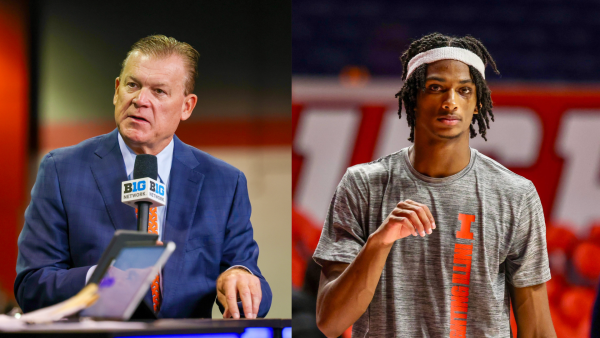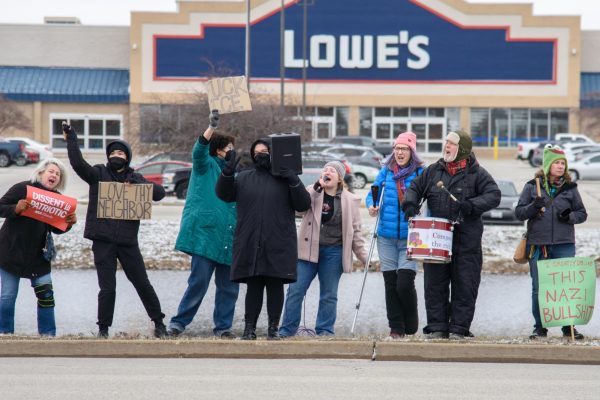Controversial public programming instigates new rules in city council
Dec 6, 2004
Last updated on May 11, 2016 at 05:38 p.m.
A vote on proposed policy changes for Urbana’s Public Television (UPTV) station is scheduled to go before the Urbana City Council tonight. The changes are expected to be approved after months of disagreement and frustration between the some city residents and Mayor Tod Satterthwaite.
If the new changes pass, they will allow UPTV to air weekly programs produced outside of the community. Also, the sponsor of a show would be required to pay for any additional equipment needed to produce a program.
Urbana’s public access policies have not been updated since 1997, said Chris Foster, the city’s public television coordinator. Attention was brought to the outdated rules in part because Randall Cotton, a public-television member, requested to air Democracy Now, an independent news program, Satterthwaite said.
Cotton, who already broadcasts Democracy Now for local radio station WEFT, discovered the program was being aired on public access channels around the country and thought it would be a good fit for Urbana, he said.
Get The Daily Illini in your inbox!
Cotton said he found the necessary satellite equipment to broadcast the show and met with Foster and Bill Dejarnette, Urbana’s information services manager, in May to discuss adding the program to UPTV. Cotton offered to pay for the equipment himself and said Foster and Dejarnette responded with enthusiasm to the idea. Cotton said he left the meeting expecting the show would air.
Since that meeting, Cotton said he has been dismayed with the amount of time it has taken to get the program on the air. He attributed the delay to resistance from Satterthwaite, whose office oversees the station. Cotton said Foster and Dejarnette became evasive about when the show would begin airing soon after their meeting.
At their July 12 meeting, the UPTV Commission formally considered Cotton’s request to add the program to the station. Cotton provided the commission with a petition that had more than 500 signatures in support of the program. Since then, Cotton said he has collected more than 1,200 signatures.
During the July 12 meeting, Foster said several policies needed to be changed before the program could be added. Satterthwaite also expressed concern about allowing a public-access member to request to add a program to UPTV, instead suggesting the commission perform a study of available programming and decide which, if any, should be added to the station’s schedule.
While five of the six commissioners supported adding the program, the commission agreed to delay a ruling until the study was completed.
But Cotton said research on available programming is unnecessary because hundreds of residents have requested Democracy Now for UPTV. He said the content of a show should not be considered when allotting public-access time. Cotton argues the mayor’s objection is based on content, which is a form of government censorship.
But Satterthwaite said his concerns were based on policy issues, not the show’s content. ÿ
“The request for the use of the satellite was a request that hadn’t been envisioned when the old policies were put in place,” he said.
Satterthwaite said that if the council votes to pass the new policies, everything will be in place for Democracy Now to begin airing.
“I think we did a good job of updating the rules and making them up to today’s standards,” Foster said.
Cotton called Satterthwaite’s recent support of the show political pandering, saying the mayor changed positions once it was clear the community supported the show.
“Now he’s trying to claim credit for it,” Cotton said. “He is basically backing down and running for cover.”





